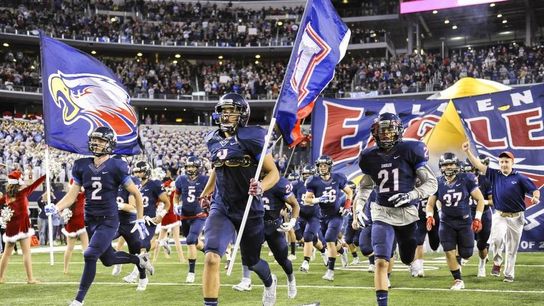With the Big 12, Pac-12, Mountain West and MAC in Phoenix for their their respective spring meetings this week, CBSSports.com's Jon Solomon took the collective temperature on one of the pieces of legislation floating around the college football industry: an early signing period.
First, a quick recap. In January, a 12-member NCAA committee recommended an early signing period for the Class of 2016 to be considered by the Conference Commissioners Association - comprised of the CEOs of the 32 Division I conferences - which runs the National Letter of Intent program and, thus, has final say on making early signing period a reality. The CCA will meet next month in Asheville, N.C., and, should they so choose, could bring an early signing period to life for this winter, beginning Dec. 16 and lasting 72 hours thereafter.
Now, with that said, where does everyone stand?
Here's Pac-12 commissioner Larry Scott: "I think we've been persuaded the move from February to December is a compromise for some that have been pushing for earlier."
Mountain West commissioner Craig Thompson supported the measure. So did MAC commissioner Jon Steinbrecher. "I will represent our position," said Steinbrecher. "We will see how the discussion goes."
As you'll see, every conference that supports the move does so for its own reasons. That's politics. The Pac-12 will support a December signing period as a compromise for warding off an August signing period, since a high number of its membership (read: Stanford, Cal, USC, et al) needs as much academic data on the table before accepting a signature. Thompson cited the "babysitting" that occurs in January and February for committed prospects, an expense his budget-conscious conference would like to remove from its books.
And then there's the Big 12. With nearly half of its membership and a far higher percentage of its recruits hailing from Texas, Texas Tech athletics director Kirby Hocutt - speaking for Big 12 commissioner Bob Bowlsby, who was not present for the discussion - raised a concern about the gargantuan Texas high school playoffs, which run six rounds and stretch nearly to Christmas.
"While most recognize the early signing period has a number of advantages, there was a concern with how it would affect those high school teams in the state of Texas who would still be competing in the playoffs that overlapped with the 72-hour signing period," Hocutt told CBS.
Let's bring some logic to this discussion.
The 2015 11-man Texas high school title games (the two six-man title games take place the week prior) will be played Dec. 17th, 18th and 19th - at a site other than the Dallas Cowboys' AT&T Stadium thanks to NFL scheduling. We're talking about 10 games and 20 teams out of the thousands of football-playing schools in the state of Texas.
In reality, that's a fraction of the players that will sign NLIs from the Lone Star State - and those competing in the state championships will still have opportunity to sign their scholarship papers during the early period should they so choose.
How will Bowlsby relay his league's concerns at next month's meetings? Who knows. Early signing period is a topic that's been kicked around for years, and there's no telling if it will even pass this summer. But there are a number of good reasons to adopt a December period, and a number of reasons to reject it - but the Texas high school playoffs are not one.
